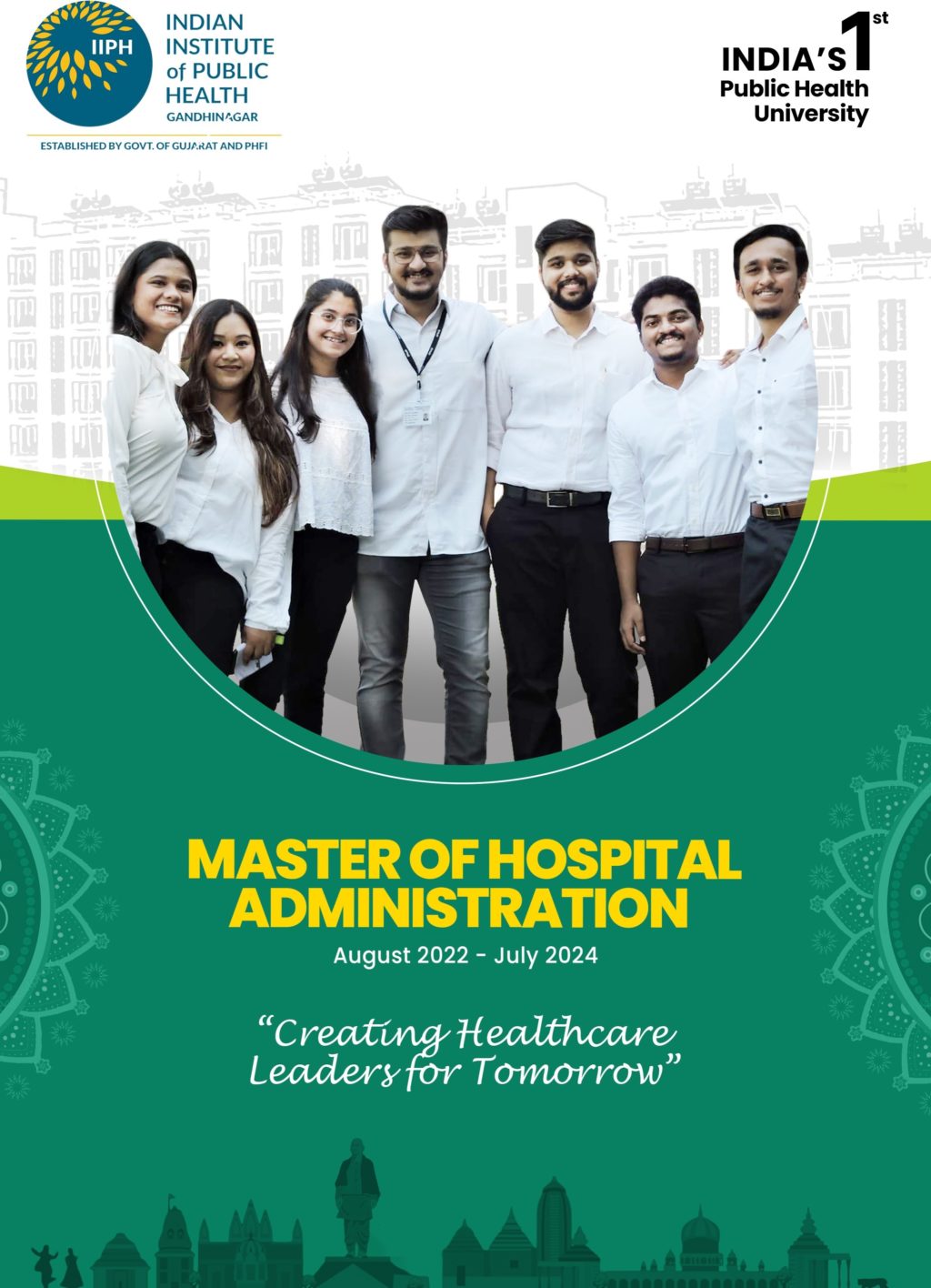About Hospital Administration
The healthcare sector, including the Master of Hospital Administration, is experiencing rapid growth. IBEF estimates its revenue will reach US$ 372 billion by 2022, with a cumulative average growth rate of 16%. KPMG India predicts the creation of 7.4 million jobs in the sector by the same year. The hospital sector, constituting 70% of healthcare, will drive the majority of these revenue and job opportunities.
With surging growth in this sector, the demand for professionally trained hospital managers is also on the rise. A well-managed hospital leads to superior quality health outcomes, and satisfied patients. Currently, in India, there is a severe paucity of professionally trained hospital administrators. Very few academic institutes are focused on producing professional hospital administrators for our settings.
Lack of a professional hospital administrator does not allow medical staff to solely focus on medical care. This may result in inefficiency and poorer outcomes for the hospital.
Thus, a professional hospital administrator has a pivotal role in a growing healthcare sector that is driven to serve the people.
In India, there is severe paucity of professionally trained hospital administrators. Limited numbers of academic institutes are focused on producing trained hospital administrators. While the demand for qualified administrators is increasing rapidly. As a result, in many hospitals, senior practicing doctors are also performing the role of administrator. However, it places a significant demand on these doctors, making it difficult for them to devote adequate time to both clinical and administrative work. As a result, either clinical or administrative work gets neglected, ultimately resulting in poor quality of care and/or poor patient satisfaction. Hence, professionally qualified hospital administrators not only have a very good career prospects but also are pivotal to the growth of hospitals in India.

Details for Master of Hospital Administration Program
The program at IIPHG is designed to equip students with a wide breadth of public health knowledge through a wide range of compulsory and elective courses. The short internship and longer dissertation exposures, facilitated through numerous partnerships that the institute has nurtured over the years, give students the opportunities to experience key public health spheres in India.
Students are mentored to apply classroom learnings, to reflect upon their observations and findings, and to read relevant theory to deepen their classroom learning in specific real-life public health contexts. Public health is a multi-disciplinary program and our Master’s program invites applications from a variety graduates resulting in a diverse and rich classroom environment.
IIPHG is a pioneer institute in public health education, training, research and advocacy. The institute has been recognized as the first public health university in India (under IIPHG Act, 2015, of Gujarat State). IIPHG has a number of collaborations and MoUs for research, and projects with organizations of repute in India and abroad.
IIPHG has partnered with various central government organizations like ICMR, DST, DBT, IMD, and numerous state governments to give students a dynamic learning experience.
Why choose IIPHG for MHA?
MHA is a two year, full-time programme. It is designed to develop professionally trained administrators who can play an effective managerial role and provide leadership in public and private hospitals and healthcare organizations. For achieving its intended objective, the programme curriculum is structured with a multi-disciplinary perspective, including general management and hospital management theories and practices. The classes are delivered using a variety of teaching and learning techniques, including lectures, case discussions, practical exercises, lab-work, hospital visits, seminars, journal clubs, collaborative learning, group discussions, assignments, hands-on training, internship in hospitals, and dissertation.
Faculty
IIPHG has 18 full-time faculty members with management, finance, public health, medical, and social science backgrounds. All of them have advanced qualifications from reputed Indian and/or foreign universities. Additionally, a number of visiting/adjunct faculty from India and abroad also contribute to the teaching. IIPHG also draws upon highly experienced hospital managers as visiting faculty.
Advisory Board
Leading doctors and professionals from renowned hospitals like Apollo, CIMS, Zydus, Sterling, Shalby, HCG, Asian Bariatrics, Parekh, Samved, etc. are on the advisory board for this programme.